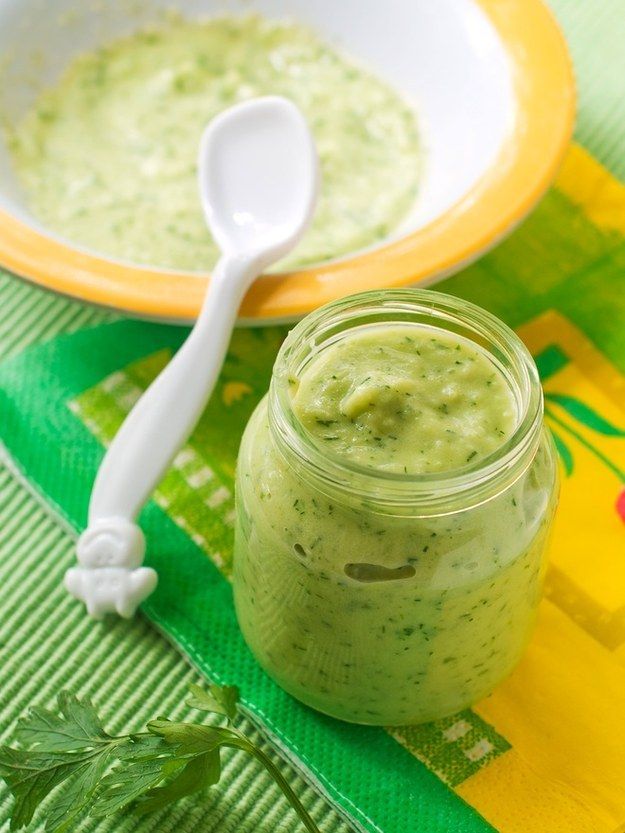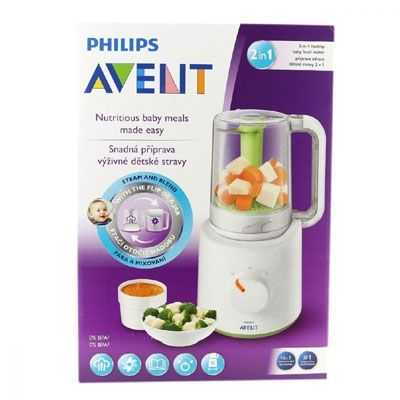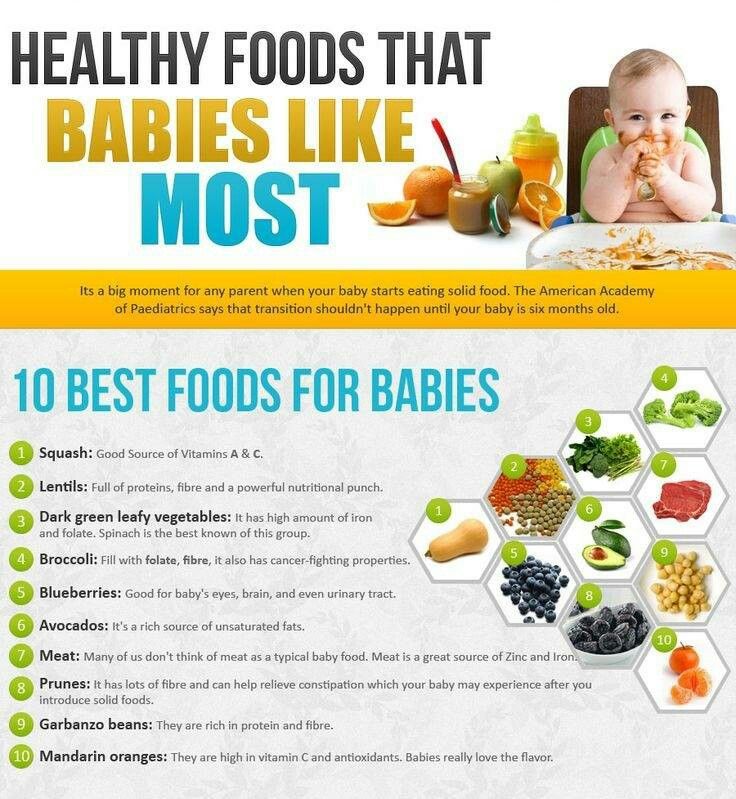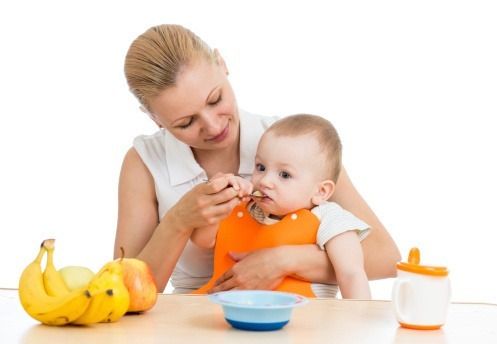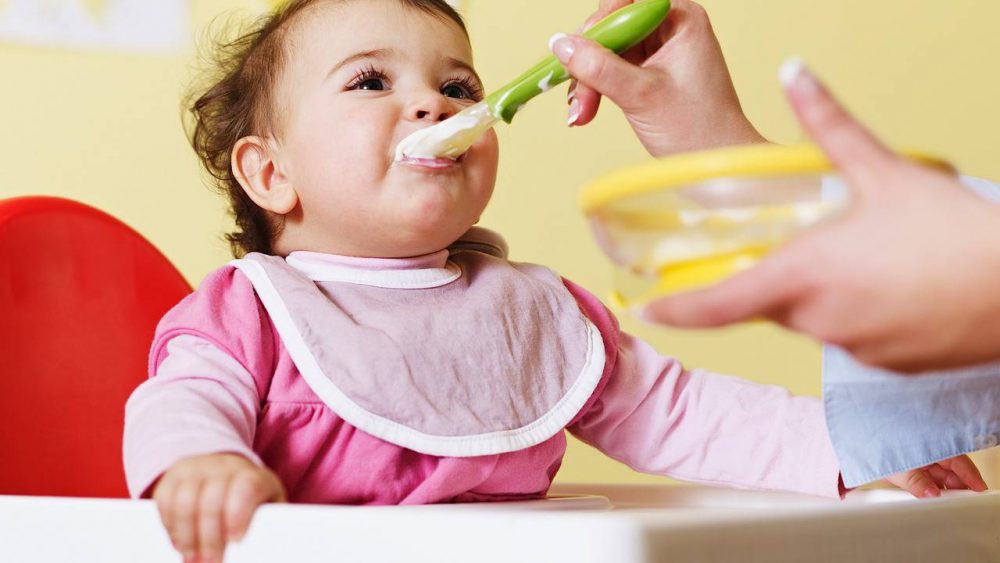Baby food formula recall
Baby formula: Abbott announces another recall but claims it affects small fraction of total US supply
Amid formula shortage, moms donate their milk to others
02:30 - Source: CNN
CNN —
Abbott Labs said Friday that it is recalling certain lots of 2 fluid ounce/59 milliliter bottles of Ready-to-Feed liquid formula for infants and children due to a problem with the bottle caps on some bottles that may not have sealed completely and could result in spoilage.
If a child were to consume spoiled formula, the company said, it could cause stomach problems such as vomiting or diarrhea.
Similac and Enfamil products are seen on largely empty shelves in the baby formula section of a Target store, amid continuing nationwide shortages in infant and toddler formula, in San Diego, California, U.S., May 25, 2022. REUTERS/Bing Guan/File Photo
Bing Guan/ReutersFDA report details agency fumbles during infant formula investigation that hampered response
A company spokesperson told CNN that the recall involves “less than a day’s worth” of the total infant formula used in the US and should not affect the overall supply.
This formula was manufactured in Columbus, Ohio, not at Abbott’s plant in Sturgis, Michigan, that was the focus of a large recall in February that exacerbated a shortage of baby formula, leading to ongoing problems.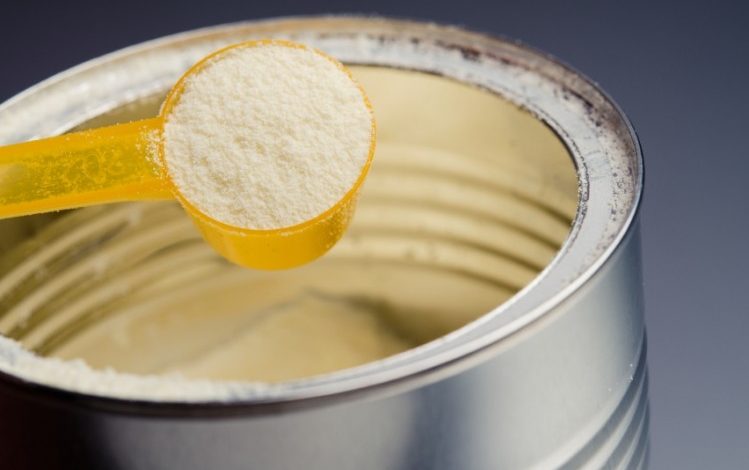
The recalled brands include Similac, Pro-Total Comfort, Similac 360 Total Care, Similac 360 Total Care Sensitive, Similac Special Care 24, Similac Stage 1, Similac NeoSure, Similac Water (Sterilized) and Pedialyte Electrolyte Solution.
A customer stands waiting for assistance to receive baby formula in a Walmart Supercenter on July 08, 2022 in Houston, Texas. Consumer goods continue seeing shortages as the country grapples with ongoing supply chain issues stemming from the pandemic.
Brandon Bell/Getty ImagesBaby formula waivers, rebates extended to allow WIC families more flexibility to buy different brands
Most of these products are distributed primarily to hospitals and doctors’ offices.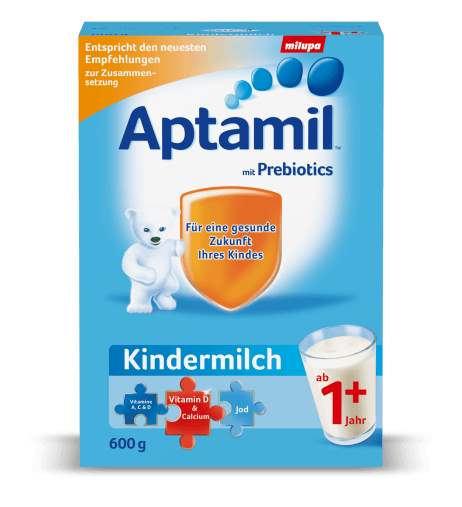
The recall does not include any other liquid or powder formula brands or other nutrition products produced at Abbott’s Ohio facility or any other manufacturing location.
Affected lot numbers are listed on the website similacrecall.com. If a consumer has one of the recalled products, they should not feed it to their child, the company said.
“We take our responsibility to deliver high-quality products very seriously,” Joe Manning, Abbott’s executive vice president of nutritional products, said in a news release.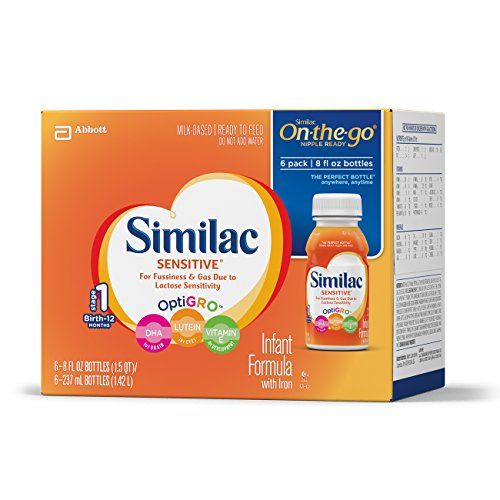 “We internally identified the issue, are addressing it, and will work with our customers to minimize inconvenience and get them the products they need.”
“We internally identified the issue, are addressing it, and will work with our customers to minimize inconvenience and get them the products they need.”
Fort Lauderdale Fl July 6: Baby Formula shortages hit Florida Super Markets ( Publix) on July 6 2022
hoo-me/MediaPunch/APBaby formula shortage is easing for many, but it still isn't over
Abbott’s Sturgis plant was shuttered for months after an FDA inspection found Cronobacter sakazakii bacteria, which can be deadly to infants, in several areas. Similac, Alimentum and EleCare powdered infant formulas made at the plant were recalled, and the closure exacerbated shortages caused by supply chain disruptions. Families across the United States have struggled for months to find formula for infants and for people with specific nutrition needs.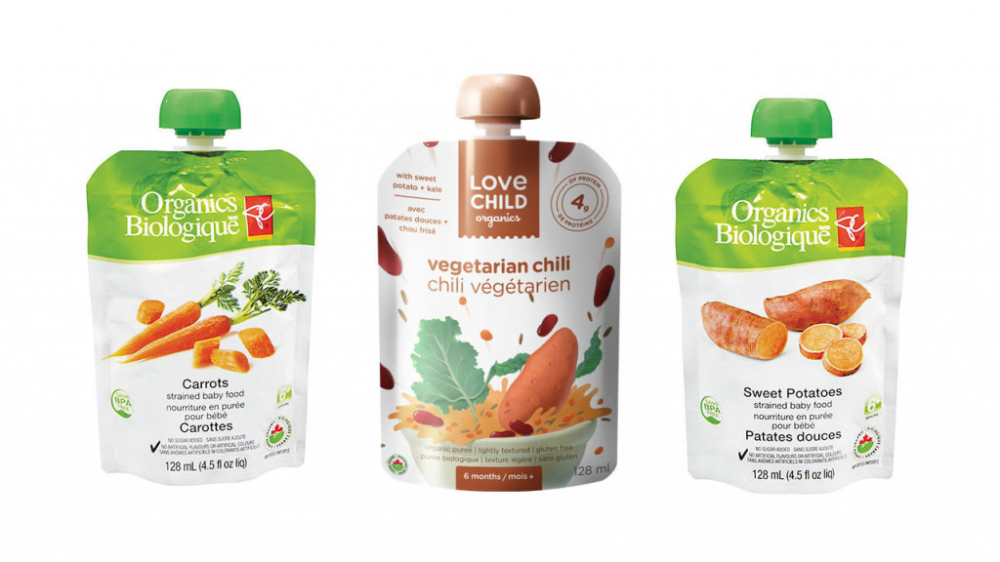
Production had been underway for less than two weeks before a storm and flooding in July prompted officials to close the plant again. It was restarted in August.
The Biden administration’s Operation Fly Formula efforts have brought in millions of pounds of imported formula to help with the shortage.
Stock rates for formula have gotten much better, but they are still not back to typical levels before the shortage, according to market research firm IRI.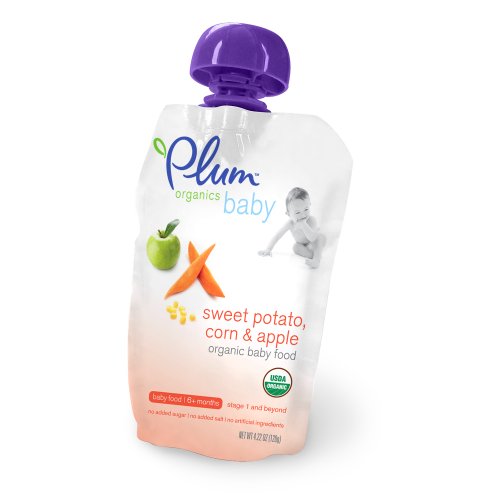
Powdered Infant Formula Recall: What to Know
Image
For the latest on infant formula, please visit the FDA webpage, Infant Formula Information and Ongoing FDA Efforts to Increase Supply and the HHS webpage, Information for Families During the Formula Shortage.
Español
If you use powdered infant formula, be aware certain Similac, Alimentum and EleCare products have been recalled and should not be used.
The U.S. Food and Drug Administration (FDA) is investigating consumer complaints of bacterial infections in four infants who consumed powdered infant formula produced in Abbott Nutrition’s facility in Sturgis, Michigan. All four infants had to be hospitalized and the bacterial infection may have contributed to death in two patients.
The FDA has published a full list of recalled brands. Recalled products should no longer be available for sale. But if you have these products in your home, check the lot code on the bottom of the package to determine if they are included in the recall.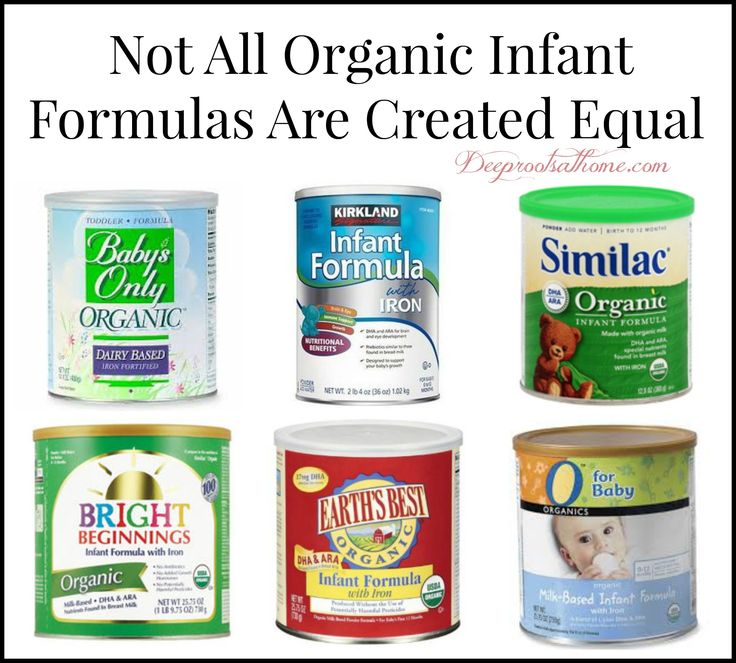
The FDA also is providing additional information for parents and caregivers of infants receiving medical specialty infant formula and individuals using certain medical foods.
Because infant formula is the only source of nutrition for many newborns and infants, the FDA understands and shares the concerns parents and caregivers may have.
Here’s information to help you as we continue our investigation.
What powdered infant formula products have been recalled?
Abbott Nutrition has recalled certain powdered infant formula products produced at its Sturgis, Michigan facility. Products from that facility can be found across the U.S. and some were exported to other countries. Here’s how you can tell if you have any of those products.
The FDA recommends consumers look at the lot code, a multidigit number on the bottom of a container of Similac, Alimentum and EleCare powdered infant formula and do not use if:
- the first two digits of the code are 22 through 37; and
- the code on the container contains K8, SH or Z2; and
- the expiration date is 4-1-2022 (APR 2022) or later.
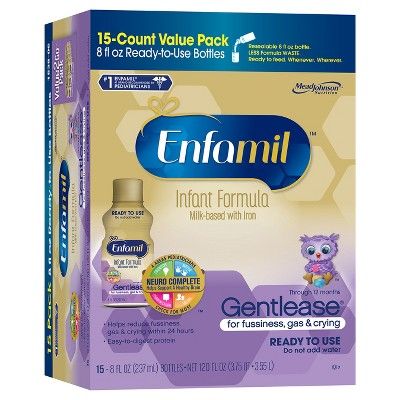
In addition to products described above, Abbott Nutrition has recalled Similac PM 60/40 with a lot code of 27032K80 (can) / 27032K800 (case).
You can also enter your product lot code on the company’s website to check if it is part of the recall. Please see the images below for a closer look at the identifying information.
Powdered Abbott products that don’t have the code and expiration noted above are not included in the recall. Liquid formula products are not subject to the recall. At this time, Similac PM 60/40 with lot code 27032K80 (can) / 27032K800 (case) are the only type and lots of this specialty formula being recalled.
What infections have been reported and what symptoms should I look for?
All four cases involve Cronobacter sakazakii infection.
- Cronobacter bacteria can cause severe, life-threatening infections (sepsis) or meningitis (an inflammation of the membranes that protect the brain and spine). Cronobacter infections are rare but are especially high risk for newborns.
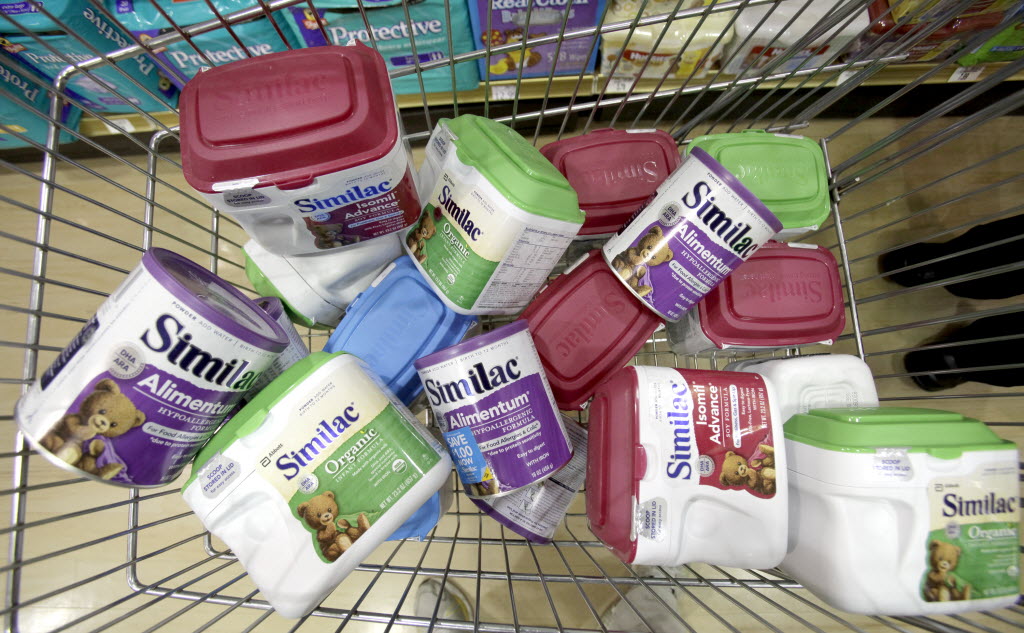
- Symptoms related to Cronobacter infection include: poor feeding, irritability, temperature changes, jaundice, grunting breaths, or abnormal body movements.
- If your infant is experiencing symptoms related to Cronobacter infection, contact your child’s health care provider to report his or her symptoms and receive immediate care.
When and where were the illnesses?
Illnesses occurred in Minnesota, Ohio, and Texas between September 6, 2021 and January 4, 2022.
I’m having a hard time finding formula. What is the FDA doing to help?
We are aware the recall has created new concerns about the availability of certain types of infant formula, particularly given the overall strains on supply chains experienced during the COVID-19 pandemic.
The FDA continues to take several significant actions to help increase the current supply of infant formula in the U.S. In fact, other infant formula manufacturers are meeting or exceeding capacity levels to meet current demand.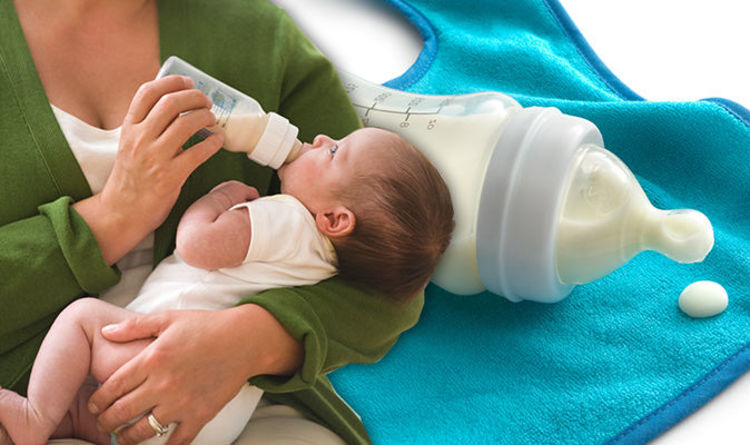
The FDA is working with Abbott Nutrition to better assess the impacts of the recall and understand the production capacity at other Abbott facilities that produce some of the impacted brands. We are also working with Abbott on safe resumption of production at the Sturgis, Michigan facility. As Abbott Nutrition was initiating its recall, the FDA intensified outreach to other infant formula manufacturers to inquire about their capacity and potential impacts. We will continue discussion with Abbott Nutrition and other infant formula manufacturers and consider all tools available to support the supply of infant formula products.
Are homemade formulas an alternative?
No. The FDA advises parents and caregivers not to make or feed homemade formula to infants. Homemade infant formula recipes have not been evaluated by the FDA and may lack nutrients vital to an infant’s growth.
What should I know about medical specialty infant formula and certain medical foods?
The Abbott Nutrition facility that produces recalled infant formulas also produces metabolic and other medical specialty infant formulas for infants with inborn errors of metabolism and other medical needs, as well as medical foods.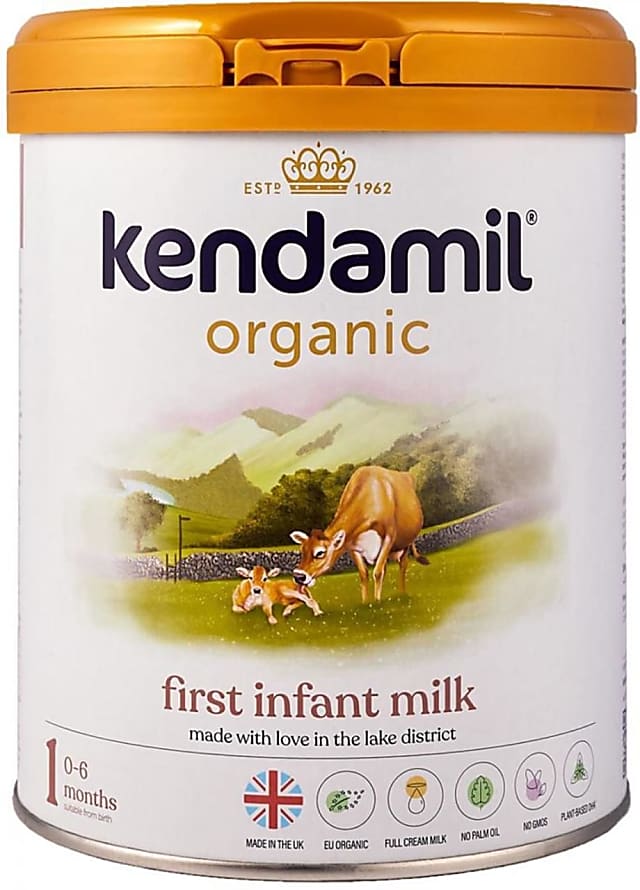 These products, with the exception of one lot of Abbott Similac PM 60/40, have not been recalled because the FDA has determined that the risk of not having these specialty products available would significantly worsen underlying medical conditions. For many of these patients, the risk of life-threatening adverse events from restricted access to these critically needed products is likely greater than the risk from consuming products that have been produced at the facility.
These products, with the exception of one lot of Abbott Similac PM 60/40, have not been recalled because the FDA has determined that the risk of not having these specialty products available would significantly worsen underlying medical conditions. For many of these patients, the risk of life-threatening adverse events from restricted access to these critically needed products is likely greater than the risk from consuming products that have been produced at the facility.
The FDA wants to be sure that parents and caregivers who use these specialty products are aware that there may be some risk of Cronobacter contamination. If possible, parents and caregivers should work with their medical provider to consider whether comparable products may be appropriate. If comparable alternative products are not available or appropriate, parents and caregivers should take extra care to follow the CDC’s updated advice for parents on how to reduce the risk of Cronobacter contamination of formula during preparation of powdered product, whether that contamination comes from the product itself or from other contamination sources in the home.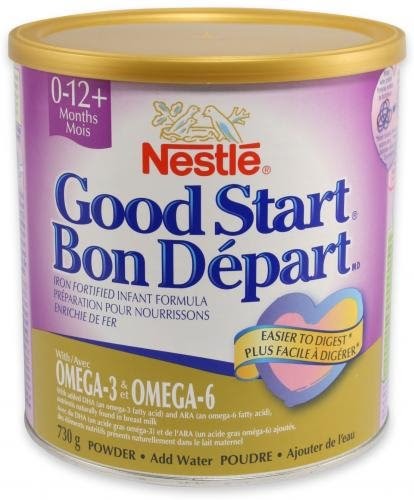
Examples of medical and specialty products include Glutarex-1, Glutarex-2, Cyclinex-1, Cyclinex-2, Hominex-1, Hominex-2, I-Valex-1, I-Valex-2, Ketonex-1, Ketonex-2, Phenex-1, Phenex-2, Phenex-2 Vanilla, Pro-Phree, Propimex-1, Propimex-2, ProViMin, Calcilo XD, Tyrex-1, Tyrex-2, and Similac PM 60/40.
It is important to note that these specialty infant formulas and medical foods are not sold in traditional retail stores. These products often require a prescription and are sold through specialty pharmacies and other specialty distribution channels such as medical product suppliers.
Parents and caregivers of infants and children using these products should contact their child’s health care providers if they have questions about the use of these products.
Additionally, the FDA has informed Abbott Nutrition that the agency has no objection to the company immediately releasing product to individuals needing urgent, life-sustaining supplies of the specialty and metabolic formulas listed in the link below on a case-by-case basis.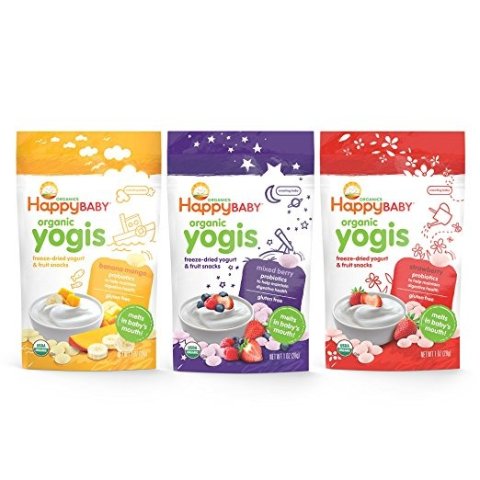 Abbott has confirmed with the FDA that the company will consider release of these products on a case-by-case basis, depending on product availability and the severity of the individual’s need. Patients and caregivers seeking access to these products should contact Abbott directly to request that a product be made available to them by calling 1-800-881-0876. For more information on those products, please see FDA Investigation of Cronobacter Infections: Powdered Infant Formula (February 2022).
Abbott has confirmed with the FDA that the company will consider release of these products on a case-by-case basis, depending on product availability and the severity of the individual’s need. Patients and caregivers seeking access to these products should contact Abbott directly to request that a product be made available to them by calling 1-800-881-0876. For more information on those products, please see FDA Investigation of Cronobacter Infections: Powdered Infant Formula (February 2022).
What else should I know?
Parents and caregivers also should never dilute infant formula. Consumers also should avoid buying formula online that comes from outside the U.S., as it has the potential to be counterfeit.
If your regular formula is not available, contact your child’s health care provider for recommendations on changing feeding practices.
If you get infant formula through WIC, do not throw the formula out. Instead, you should take it to the store for a refund and exchange or call the company at 1-800-986-8540 to help you.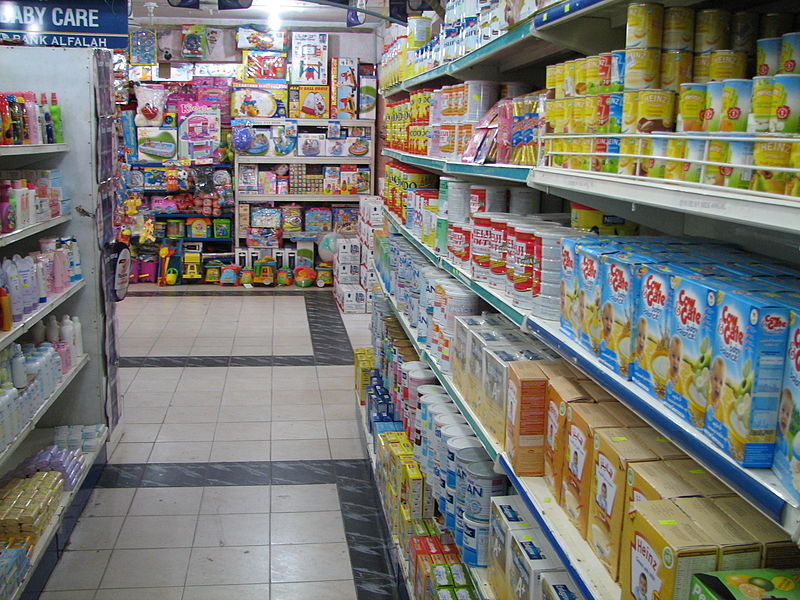 WIC recipients should be able to obtain a different brand of similar formula. Call your local WIC clinic for more guidance.
WIC recipients should be able to obtain a different brand of similar formula. Call your local WIC clinic for more guidance.
Additional Resources:
- Infant Formula: Safety Do’s and Don’ts, FDA Consumer Update
- FDA Investigation of Cronobacter Infections: Powdered Infant Formula (February 2022), FDA webpage
- Cronobacter Infection and Infants, CDC webpage
The best formulas for newborns, top-9 rating of milk formulas
Subscribe to our VK community!
It's no secret that the best food for a newborn baby is breast milk. Unfortunately, not every woman has the physical or moral ability to provide them with her child. This may be due to certain diseases, medications taken and a number of other important factors. In this case, you have to resort to things like infant formula.
Today, grocery stores and pharmacies carry a wide variety of these products. They can differ greatly in composition, nutrient content, and a number of other factors.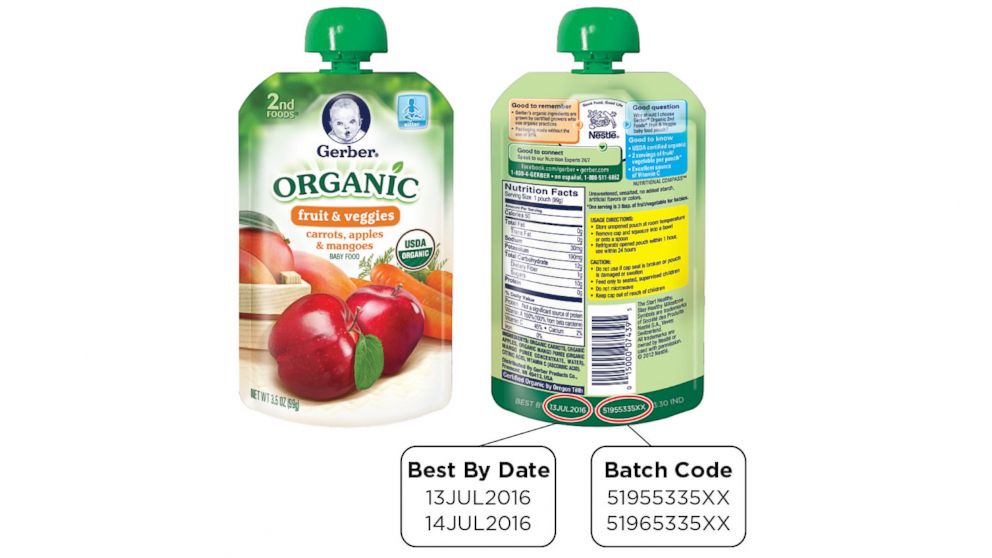 So that you are not mistaken in such an important issue, we decided to rank the best baby formulas. However, before proceeding with the analysis of these products, we would like to give you some useful tips on making the right choice. Let's start with this, and in the future we will move on to the review itself.
So that you are not mistaken in such an important issue, we decided to rank the best baby formulas. However, before proceeding with the analysis of these products, we would like to give you some useful tips on making the right choice. Let's start with this, and in the future we will move on to the review itself.
Rating summary: (hide/show)
How to choose infant formula in 2022?
As we said a little higher, it is very easy to get confused in the variety presented on store shelves. First you need to figure out what kind of food is. According to its consistency, it can be of two types - dry and liquid. Dry products represent about 90% of all available on the market. It is usually packaged in a cardboard box or tin, made in the form of a powder, which must be diluted with boiled water at room temperature before use. Liquid mixtures are usually ready to use - they just need to be warmed up a little. They are sold in special tetrapack packages, divided into portions of 200 ml each - for one full meal.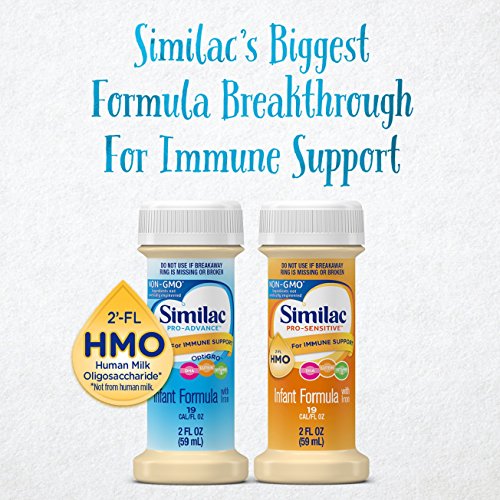 It is not so easy to find such a mixture in ordinary stores.
It is not so easy to find such a mixture in ordinary stores.
Almost all of these products are made on the basis of cow's milk, but the protein is present here in an altered form. Here, too, there is a classification - adapted, partially adapted and non-adapted. The former are produced on the basis of demineralized milk whey, therefore, in terms of their composition and nutritional properties, they are as close as possible to breast milk. They are well absorbed, designed specifically for newborns. Due to the complex manufacturing technology, such products are quite expensive.
Partially adapted mixtures contain lactose and sucrose, and also do not have a stabilized mineral fat composition. The latter type is made on the basis of casein, an unchanged protein found in cow's milk.
When choosing milk formula, be sure to take into account the age indicator. For newborns or premature babies, a product labeled 0 would be suitable, a product with the number 1 is designed for children under the age of six months, 2 - from six months to a year, 3 - for older children.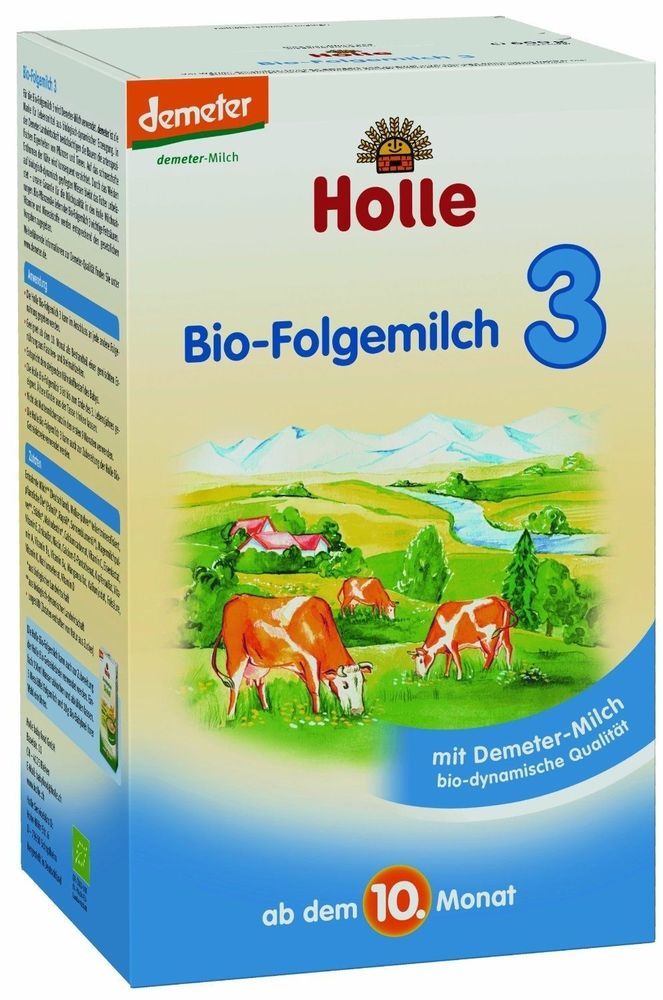
Finding the right mixture the first time is not always easy. It is advisable to carefully monitor the condition of the child after feeding and the reaction to the mixture. If the slightest signs of an allergy suddenly appear, then you should immediately abandon the selected product and switch to another one. The same is done if the child has loose stools, he shows anxiety after feeding, weakly gains weight. The mixture should be prepared in strict accordance with the instructions on the package.
When we selected the foods to include in our 2022 Best Blends list, we had all of these factors in mind in the first place. However, some other factors were taken into account - this is the ratio of price and quality of products (it should be borne in mind that baby food is always quite expensive), as well as user reviews.
Top 9 infant formulas in 2022
9. Similac (Abbott) Gold
This is the latest development in the company's infant formula line. It is characterized by an innovative composition, which is now even closer to natural breast milk.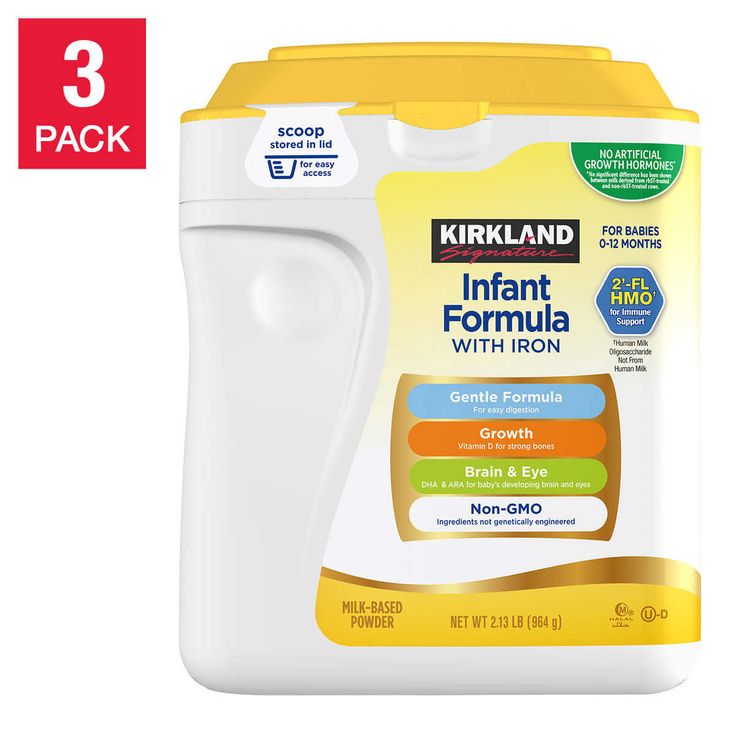 The original ingredient is added here - oligosaccharide, which until then was found only in human milk. You will not find similar products on the market today. With the help of this component, beneficial bacteria begin to actively develop in the intestines of a child. Due to the fact that up to 70% of the cells of the immune system are located in this organ, when using such milk, it is possible to strengthen and largely maintain the natural defenses of a developing and growing organism. The substance reduces colic in the baby's tummy, makes it more calm.
The original ingredient is added here - oligosaccharide, which until then was found only in human milk. You will not find similar products on the market today. With the help of this component, beneficial bacteria begin to actively develop in the intestines of a child. Due to the fact that up to 70% of the cells of the immune system are located in this organ, when using such milk, it is possible to strengthen and largely maintain the natural defenses of a developing and growing organism. The substance reduces colic in the baby's tummy, makes it more calm.
Literally in a week the child starts crying much less, and in a month the immune system becomes twice as strong and better resists various infections. The product also contains bifidobacteria B.lactis, a very effective and thoroughly researched probiotic. It contributes to the development of the natural intestinal microflora of the baby, and also maintains the digestive system in perfect order. There are FOS prebiotics, which are food for beneficial intestinal microflora, contribute to gentle emptying.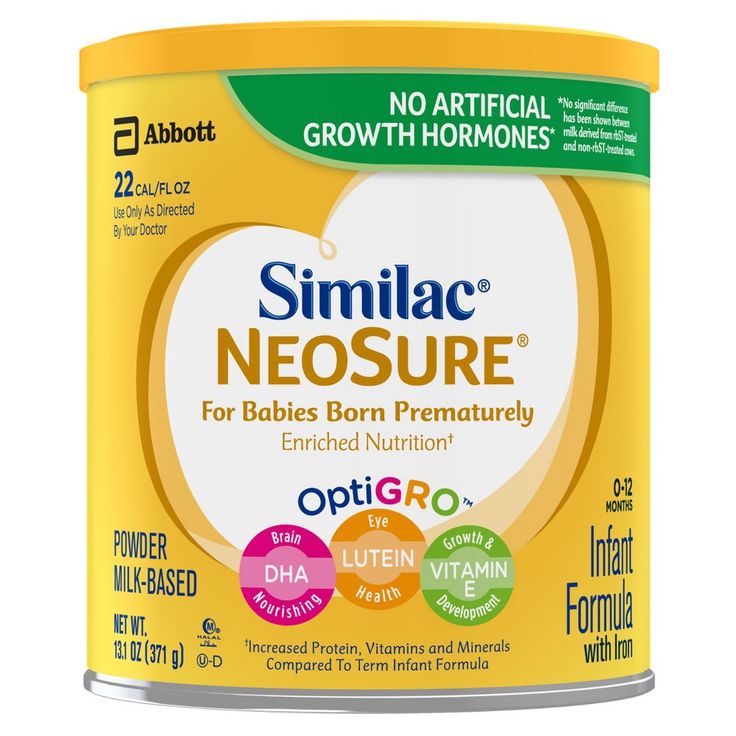 The composition does not contain palm oil, so the likelihood of constipation is minimal, and calcium will be absorbed very well.
The composition does not contain palm oil, so the likelihood of constipation is minimal, and calcium will be absorbed very well.
Benefits:
- Instantly dissolves in water without forming lumps;
- Prevents colic and constipation;
- No palm oil;
- Has all the nutrients you need, many of which are not found in other formulas.
Drawbacks:
- Expensive;
- Not found in all stores.
Similac (Abbott) Gold
8. Friso VOM
A special anti-reflux mixture, the main purpose of which is to eliminate various negative effects of feeding a child, such as colic or spitting up. The composition contains a special thickener, which is absolutely harmless to the health of the child. Its function is as follows: when it enters the baby's stomach, it does not allow the mixture to come out back, as happens when spitting up. Here, locust bean gum acts as an anti-reflux substance - a special component that also positively affects the functioning of the children's intestines and prevents constipation. It contains skimmed milk powder, as well as whey. Lactose acts as a source of carbohydrates here. Galactooligosaccharides act as a prebiotic - they help to establish proper bowel function.
It contains skimmed milk powder, as well as whey. Lactose acts as a source of carbohydrates here. Galactooligosaccharides act as a prebiotic - they help to establish proper bowel function.
Another useful substance is the polyunsaturated fatty acid Omega-3, -6. Such compounds are useful for the child's vision to develop well and in accordance with age. Nucleotides are indispensable for the development of brain connections and the digestive tract. For additional thickening of the mixture, maltodextrin is used. It does not harm the baby's esophagus and stomach, and decomposes into glucose in the intestines. It contains a whole complex of vegetable oils - sunflower, palm, rapeseed and special unicellular oil. All of them are aimed at creating the elasticity of the skin.
Benefits:
- Provides a restful sleep for the baby after the evening feeding;
- Stabilizes the chair;
- Improves the functioning of all systems of the baby's body;
- Prevents regurgitation;
- The complex of nutrients is perfectly balanced.
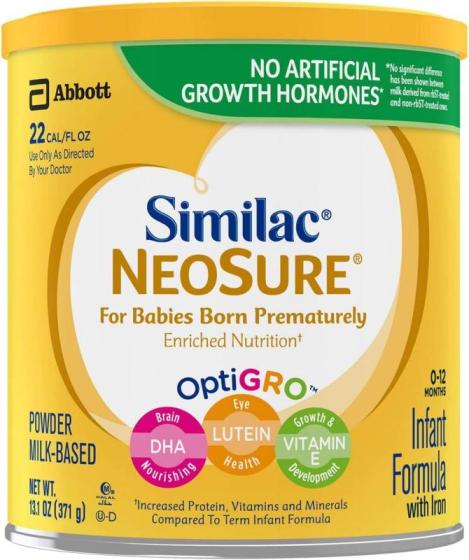
Drawbacks:
- Quite expensive;
- Very thick - difficult to pass through the nipple;
- It is necessary to dilute with rather hot water - its temperature should not be lower than 50 degrees, it is also hard to stir.
Friso VOM
7. Valio Baby
Another dry adapted product, and it has the appropriate label, depending on which the mixture is intended for children of a certain age. It is optimal for babies largely due to the perfectly balanced composition, and it is close to natural breast milk. It does not contain palm oil, but there is a complex of GOS prebiotics (galactooligosaccharides). These substances are found in large quantities in women's milk, they contribute well to the growth of intestinal microflora, restore digestion. In addition, such substances gently affect the stool and contribute to the active development of the baby's immune system. The complex of vitamins and minerals is ideally balanced so that the development of the body occurs harmoniously in strict accordance with the age of the child.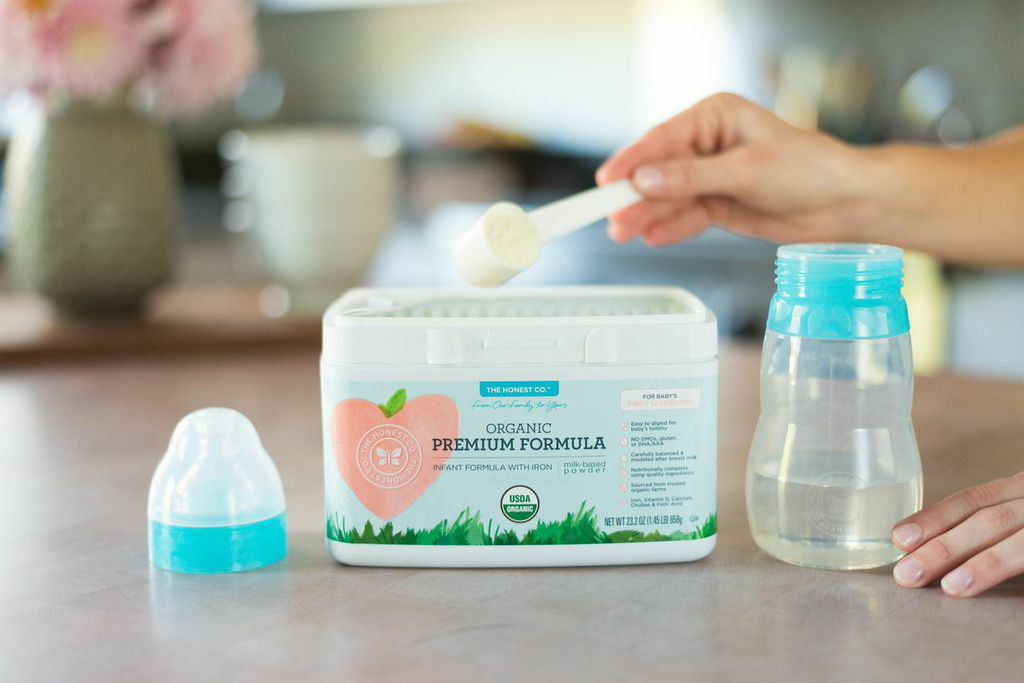 These include iron, zinc, vitamin C, calcium, and phosphorus, with the latter two also for proper skeletal development.
These include iron, zinc, vitamin C, calcium, and phosphorus, with the latter two also for proper skeletal development.
There is no palm oil here, so the child will have little colic, regurgitation and constipation. There is natural milk fat, which is completely identical to the complex of maternal milk fats. Dietary cholesterol is also at the required level. There are no artificial flavors or colors, as well as preservatives or genetically modified products.
Benefits:
- Perfectly balanced formula;
- Presence of a complex of vitamins and minerals;
- Pleasant smell and taste - most babies eat this mixture with undisguised pleasure;
- Dissolves perfectly in water without forming lumps or other inclusions.
Disadvantages:
- Some babies may have an allergic reaction to this mixture.
Valio Baby
6. Semper Baby Nutradefense
The mixture contains an original combination of MFGM & Milk fat components, which includes membranes of milk fat globules and a certain percentage of natural milk fat.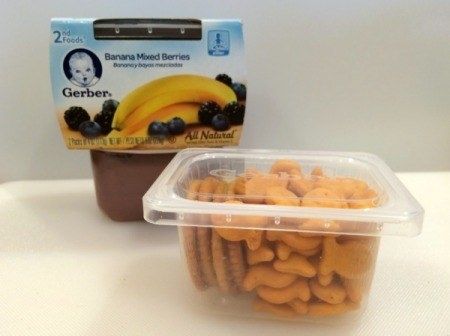 All these compounds are found in breast milk and are very important for the proper formation and development of the child. Clinical studies have shown that the use of milk formula with a similar complex reduces the likelihood of infectious diseases and increases the cognitive development of babies compared to children who ate formulas without such components. The packaging is hermetically sealed, preventing water vapor from the air from entering the mixture. Directly on the jar there is a detailed instruction on the preparation and use of the mixture, as well as on the amount of volume, depending on the age of the baby.
All these compounds are found in breast milk and are very important for the proper formation and development of the child. Clinical studies have shown that the use of milk formula with a similar complex reduces the likelihood of infectious diseases and increases the cognitive development of babies compared to children who ate formulas without such components. The packaging is hermetically sealed, preventing water vapor from the air from entering the mixture. Directly on the jar there is a detailed instruction on the preparation and use of the mixture, as well as on the amount of volume, depending on the age of the baby.
The mixture dissolves perfectly even in cold water, and it diverges very well: no lumps are formed either at the bottom or on the surface, although the manufacturer recommends diluting the product at a temperature of 40 degrees. Suitable for most babies, copes well with colic and constipation. Due to the presence of all the necessary substances and minerals, the baby, when using such a mixture, gains weight according to the plan.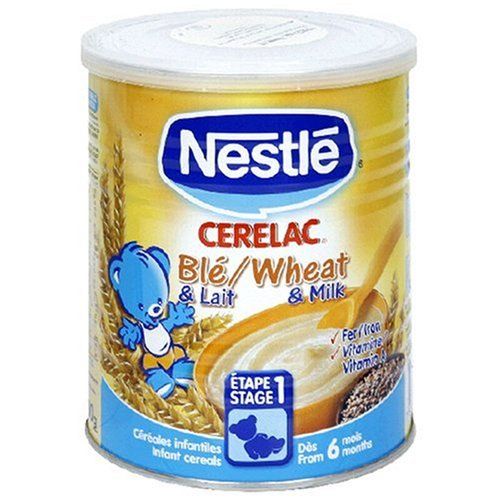
Advantages:
- The original composition of the mixture with the addition of all the necessary nutrients;
- Colic, regurgitation disappear in children, allergic reactions do not occur;
- Mixes well even in cold water;
- Babies enjoy eating these products.
Disadvantages:
- The measuring spoon that comes with the composition is often located at the very bottom of the jar;
- Relatively high cost.
Semper Baby Nutradefense
5. Nutrilon Superpremium
This company has been in the baby food business for over 40 years, and the experts have done well in this matter. Researchers studied mother's milk, tried to find out the optimal ratio of nutrients, vitamins and minerals. As a result, they have an optimal mixture that can be used as a main or additional food. In addition, the products are so similar to mother's milk that they are recommended for a smooth transition from breastfeeding to formula-feeding, if necessary.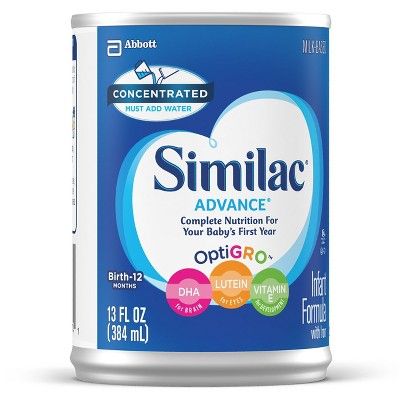 The composition lays a solid foundation for the health of the baby. The developers have added a significant amount of DHA / ARA fatty acids to it, which contribute to the rapid development of the baby's intelligence. There are also milk lipids in the mixture, due to which the entire necessary spectrum of minerals is provided, and this complex is perfectly balanced.
The composition lays a solid foundation for the health of the baby. The developers have added a significant amount of DHA / ARA fatty acids to it, which contribute to the rapid development of the baby's intelligence. There are also milk lipids in the mixture, due to which the entire necessary spectrum of minerals is provided, and this complex is perfectly balanced.
All prebiotics present in the composition are aimed at the active development of immunity. The mixture is produced in containers weighing 400 or 800 grams. The packaging is made of materials that allow you to hold it with one hand, without fear that it will slip out of your palm. Preparation of the mixture takes only a few seconds, and you can use ordinary boiled water at room temperature, you do not need to heat it. This allows you to quickly make food for the child, for example, at night, when there is not much time for cooking, and the baby screams a lot and can wake up the household.
Benefits:
- The composition contains biologically active components that ensure the growth and development of the child;
- The composition is aimed at the prevention of most pathological processes;
- The product has the same ratio of fats, proteins, carbohydrates and lactose as in human milk;
- There is an improvement in the functioning of the entire gastrointestinal tract in the baby;
- Produced on the basis of original European technology;
- Found in almost every major grocery store;
- Acceptable cost.
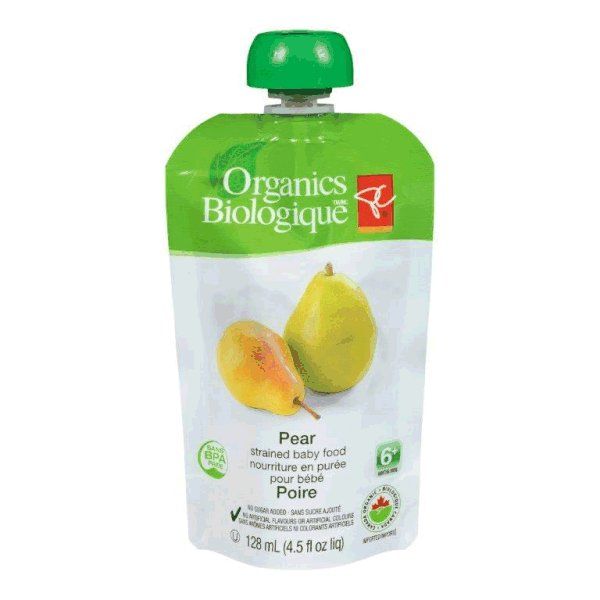
Flaws:
- Minor amounts of coconut and palm oil present;
- Some parents find that the product does not taste very good.
Nutrilon Superpremium
4. Nestogen
Carefully balanced nutrition ensures the normalization of the child's digestive system and, consequently, the proper development of the entire child's body. The mixture is absolutely safe, absorbed almost instantly. The contained prebiotics not only make the digestive process stable and relieve constipation, but also contribute to the beneficial development of the intestinal microflora and prevent regurgitation. Depending on the numerical marking, the mixture can be given to children from birth until the age of two. It is produced in cardboard packages, but the powder of the mixture itself is in sealed foil packaging.
The composition contains all the micro and macro elements that are necessary for a growing child's body. There are also fats and amino acids that can make up for the lack of nutrients.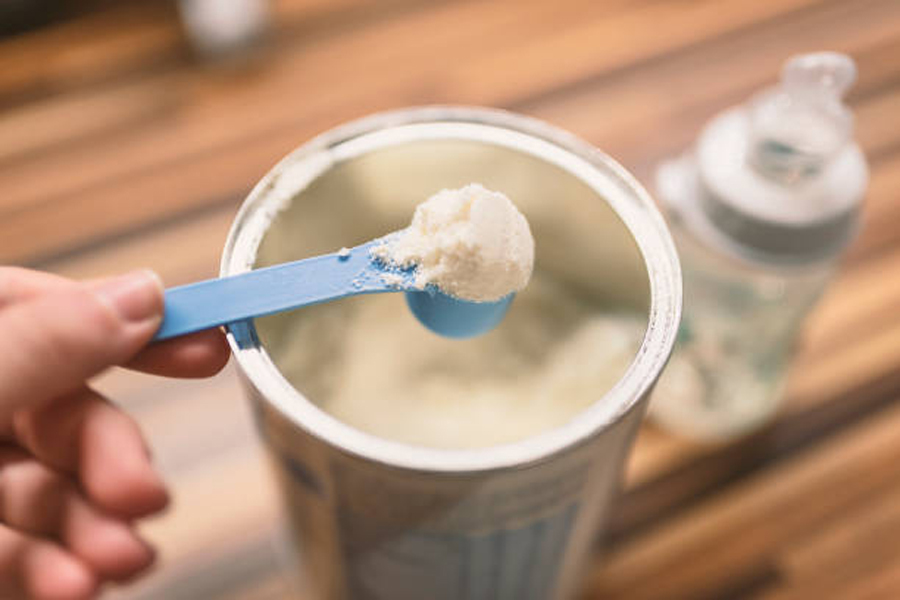
Benefits:
- Dissolves almost immediately in water;
- The composition is balanced, it is aimed at ensuring that absolutely all components of the mixture are fully absorbed by the baby's body;
- There are fatty acids that are aimed not only at improving immunity, but also at improving brain function and developing vision;
- Well adapted for children with any health condition;
- Improves the functioning of the gastrointestinal tract, including the normalization of the stool.
Faults:
- Parents often say that the mixture is too sweet;
- Foil bag does not have a snap closure;
- Contains no probiotics.
Nestogen
3. Nutrilak (InfaPrim) 1
Finally, we can present you the products that open the top four of the best infant formulas. This composition is made on the basis of whey protein of the highest quality. It also contains polyunsaturated fatty acids, which positively affect the state of the child's cardiovascular system, ensure the development of the brain and vision.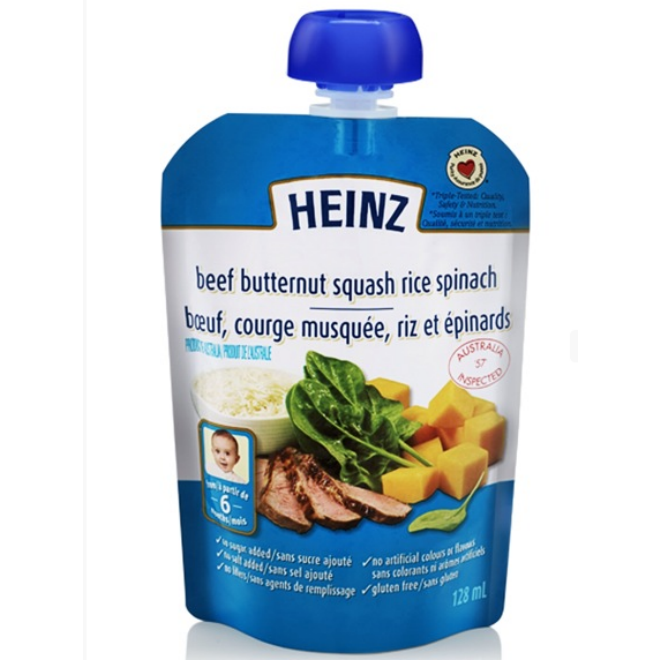 In addition, the mixture provides a well-balanced complex of vitamins necessary for the child, which was developed by the company's researchers, taking into account the age characteristics of the baby. It is well thought out, contributes to the harmonious growth and development of the body.
In addition, the mixture provides a well-balanced complex of vitamins necessary for the child, which was developed by the company's researchers, taking into account the age characteristics of the baby. It is well thought out, contributes to the harmonious growth and development of the body.
The mixture also includes vitamin D and calcium, which, together with other beneficial substances, are well absorbed by the child's intestines, and act on bones and teeth, strengthening them. The iron and zinc contained are designed to prevent anemia. The complex of antioxidants and biologically important nutrients are designed to protect the baby from most adverse environmental factors.
Advantages:
- Very reasonable cost of the mixture - it is one of the cheapest among all on the market today;
- No palm and rapeseed oil in the composition - many parents have a negative attitude towards these substances;
- Dissolves almost instantly;
- Every baby eats this mixture with pleasure.
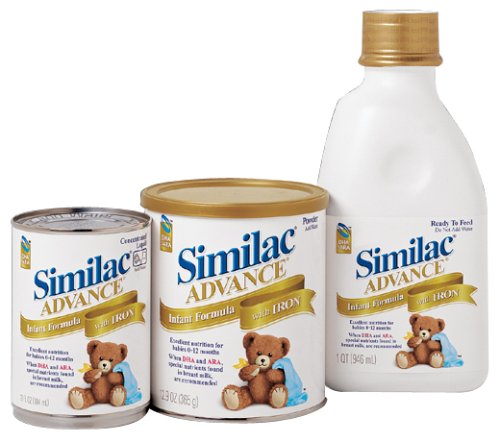
Disadvantages:
- Not very convenient packaging, including measuring spoon.
Nutrilak (InfaPrim) 1
2. BIBIKOL Nanny Classic
Depending on the label, it is used from birth until the child reaches the age of two. The composition is a dry, fully adapted milk formula, which is produced on the basis of goat milk, which is obtained in New Zealand farms. The natural conditions in this country make it possible to fully provide animals with fresh grass throughout the year. Product developers were able to fully preserve all the beneficial qualities of goat milk, largely due to the original production technology of its composition. It contains less alpha-S1-casein and beta-lactoglobulin when compared to standard baby food formulas made from cow's milk. In addition, the composition contains natural milk fat and oils of vegetable origin of the highest quality.
Goat milk contains nucleotides, membrane components of fat globules (for example, phospholipids), oligosaccharides in sufficient amount for a child's organism.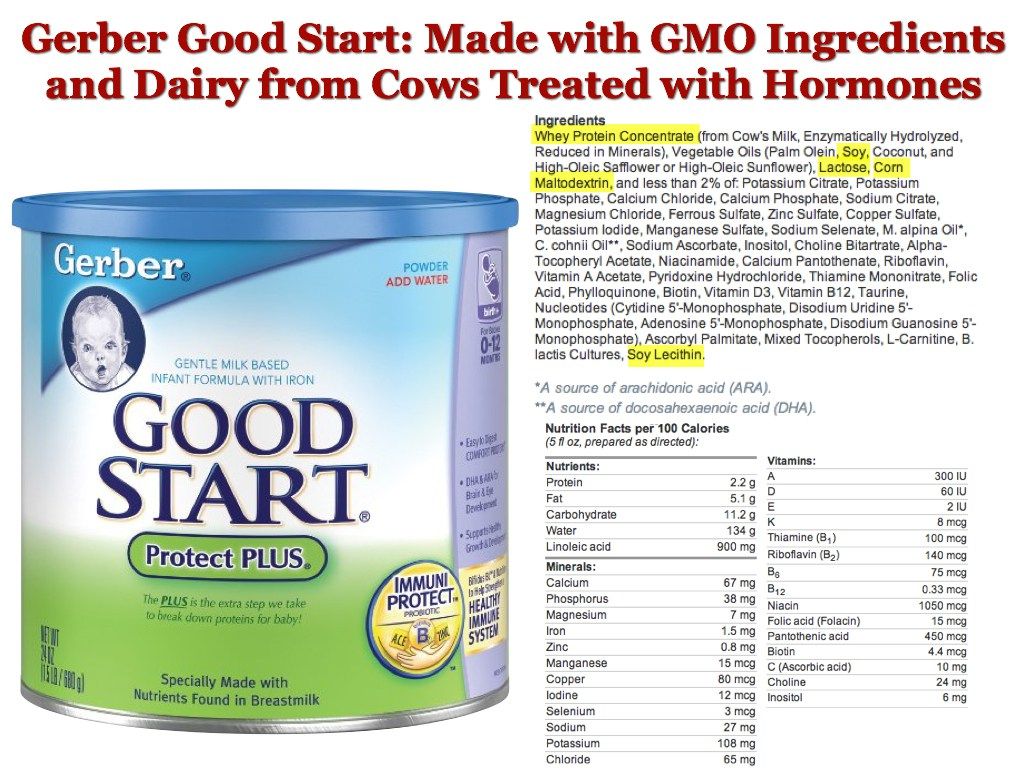 The optimal amount of omega-3 and omega-6 fatty acids has been added to the mixture, there is a carefully balanced vitamin-mineral complex designed exclusively for the child.
The optimal amount of omega-3 and omega-6 fatty acids has been added to the mixture, there is a carefully balanced vitamin-mineral complex designed exclusively for the child.
Benefits:
- Goat's milk causes fewer allergic reactions than cow's;
- Great for lactose intolerant children;
- Quite tasty product;
- Easily digested in children's intestines;
- Minimum risk of allergic reactions.
Disadvantages:
- Slightly more expensive than products made with cow's milk.
BIBIKOL Nanny Classic
1. NAN Optipro
In the first place of the rating was the product of the Swiss brand, which is preferred by many parents largely due to its good qualities and pleasant taste. The main distinguishing point of this mixture compared to all other products that we considered as part of our review is the presence of beneficial bifidobacteria here. Otherwise, this is also an adapted dry milk mixture that can be fed to a child from the very moment of birth. The composition is carefully balanced, so the manufacturer guarantees with confidence that the baby will receive all the necessary nutritional compounds, vitamins and minerals that are required for his physical, psychological and mental development in the first months and years of life.
The composition is carefully balanced, so the manufacturer guarantees with confidence that the baby will receive all the necessary nutritional compounds, vitamins and minerals that are required for his physical, psychological and mental development in the first months and years of life.
There is a unique Optipro complex here, which provides the baby with the required amount of protein, and bifidobacteria help to form and improve immunity. The mixture contains the right amount of trace elements, minerals and vitamins. Products are manufactured using the highest quality raw materials. It will not be possible to detect flavorings, genetically modified foods, preservatives and dyes. The mixture is very pleasant in taste, it contains a variety of vegetable oils, as well as fish oil, instead of standard table salt, magnesium chloride is used here. It is diluted with water of any temperature - better than room temperature, so that later it does not have to be heated.
Benefits:
- Excellent product quality;
- Widely available in all grocery stores;
- Does not cause colic or loose stools;
- Convenient packaging;
- Easily dissolves in water.
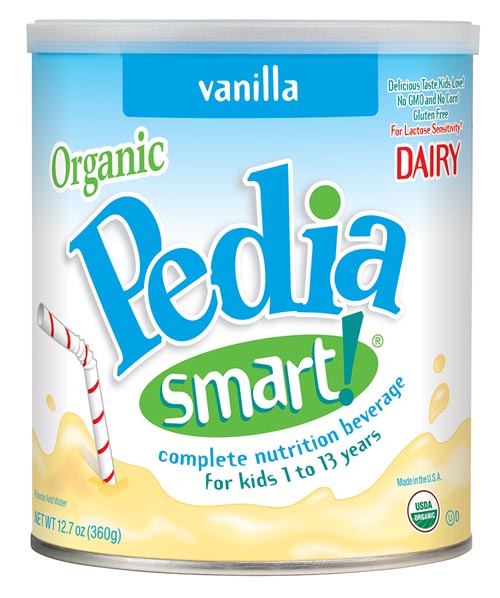
Flaws:
- Except for the relatively high price was not found.
NAN Optipro
In conclusion, useful video
Our review of the most popular infant formulas on the Russian market has come to an end. If you still have some questions or want to share your impressions of the use of a particular product - welcome to the comments on this article. It will be very interesting for us and our readers to know your opinion.
There is a severe shortage of powdered infant formula in America
Society 1441
Share
The situation with infant formula has become so critical that Senator Tom Cotton has already called it a "national crisis", Congress began an investigation, and President Biden was forced to announce measures to curb the deficit.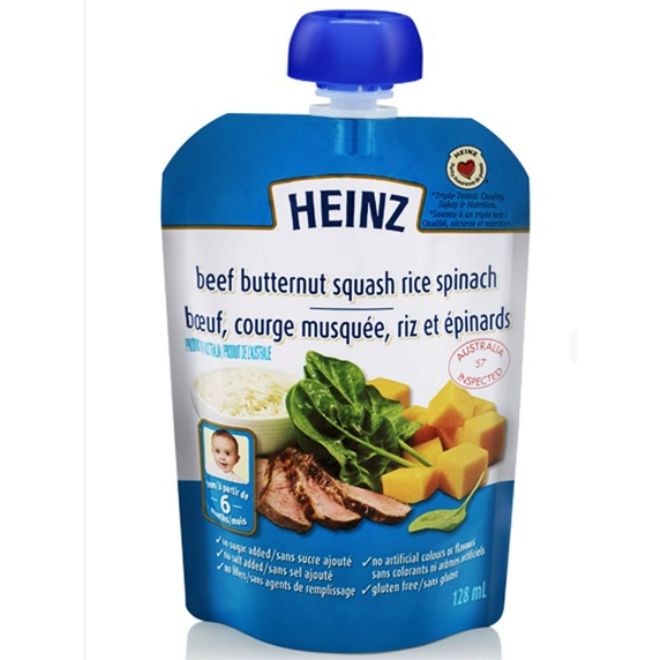
Deliveries of infant formula to stores have been so reduced that large retail chains and pharmacies are forced to limit the number of cans "in one hand." For example, CVS and Walgreens only sell three packages of dry mix at a time. According to Datasembly, a company that tracks price indexes and sales of various products, in the first week of May, the lack of milk formula in warehouses across the country was 43% (for comparison, in April - 40%, and in November last year - 11%). Worst of all is the situation with warehouses in the states of Iowa, South Dakota, North Dakota, Missouri, Texas and Tennessee. Accordingly, prices rose sharply - by 18%. On eBay, some savvy sellers offer a $200 can of powdered formula, and there are sure to be buyers: in the US, three-quarters of children receive either full or partial formula in their first six months of life.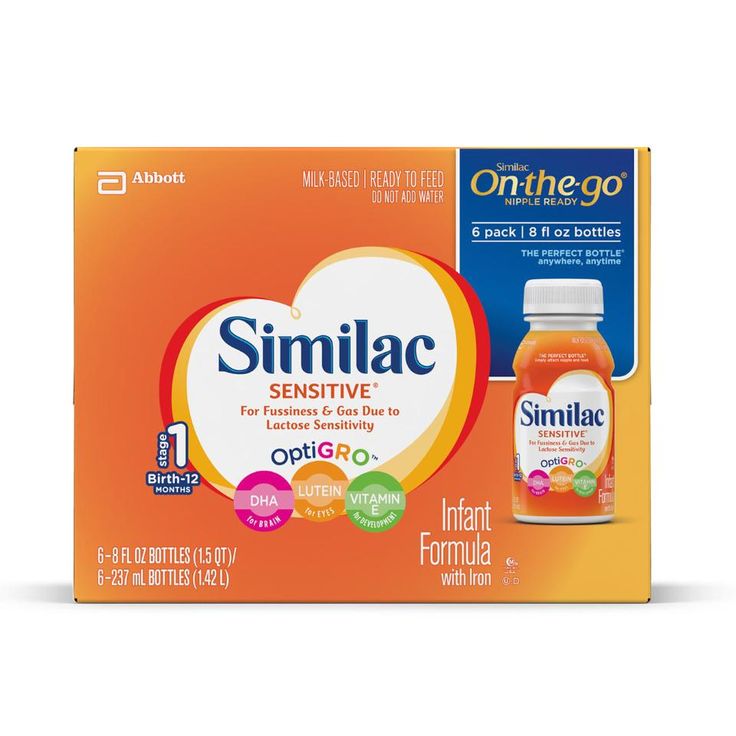 Worst of all are those families whose children, for medical reasons, cannot eat anything other than these mixtures.
Worst of all are those families whose children, for medical reasons, cannot eat anything other than these mixtures.
Abbott fights bacteria
What caused this crisis? The official version, which we already wrote about: in February, the Food and Drug Administration (FDA) stated that certain mixtures of Similac (Similac), Alimentum (Alimentum) and EleCare (EleCare) are contaminated with the dangerous bacterium Cronobacter sakazakii, which can lead to death. Four kids were hospitalized, two died. Abbott Nutrition has announced a voluntary recall of some batches of this baby food that was produced at its plant in Sturgis, Michigan (these powdered formulas were found to be contaminated). In early March, several more dry mixes produced at the same plant were recalled due to Salmonella contamination.
Bacteria in baby food is not uncommon. Back in 2004, the Codex Committee on Food Hygiene (CCFA) of the World Health Organization revised the International Code of Hygienic Practice for Foods for Infants and Older Children, tightening the requirements, including due to cases of contamination of mixtures with bacteria.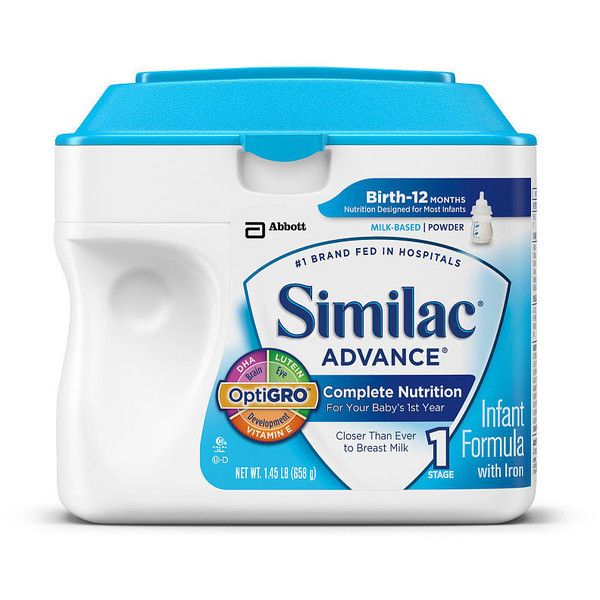 A review of Abbott's records shows that the company has had to destroy batches of premixed formulas in the past due to the presence of Cronobacter. In addition, in February, the FDA emphasized that the recall only applies to dry powder from certain batches, and does not apply to liquid infant formula and other baby foods manufactured by Abbott Nutrition. In other words, it is hard to imagine that a temporary shutdown of the production line of several (!) dry mixes at one plant can lead to such a large-scale national crisis. Not to mention the fact that other manufacturing companies were not affected by the recall, and they continue to produce their products.
A review of Abbott's records shows that the company has had to destroy batches of premixed formulas in the past due to the presence of Cronobacter. In addition, in February, the FDA emphasized that the recall only applies to dry powder from certain batches, and does not apply to liquid infant formula and other baby foods manufactured by Abbott Nutrition. In other words, it is hard to imagine that a temporary shutdown of the production line of several (!) dry mixes at one plant can lead to such a large-scale national crisis. Not to mention the fact that other manufacturing companies were not affected by the recall, and they continue to produce their products.
Furthermore, the company's official statement dated May 11 states: “After a close examination of the situation, there is no evidence that these cases [infant deaths - Ed.] are associated with the consumption of our baby food; the bacterium Cronobacter sakazakii, which was found during testing, was in areas not in contact with products.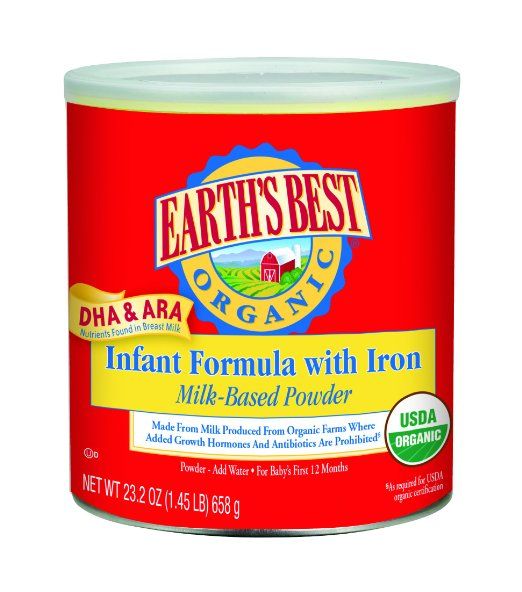 The bacterial samples found at the plant did not match the strains found in the babies' tests. An Abbott spokesperson also said that all products tested for Cronobacter sakazakii and Salmonella were negative and that no Salmonella was found at the Sturgis facility during the investigation.
The bacterial samples found at the plant did not match the strains found in the babies' tests. An Abbott spokesperson also said that all products tested for Cronobacter sakazakii and Salmonella were negative and that no Salmonella was found at the Sturgis facility during the investigation.
However, the FDA insisted that infant formula was produced in unsanitary conditions, and Abbott's internal records showed that the company destroyed some of its products due to bacteria in the factory. On May 16, Abbot reached an agreement with the FDA that allowed the production lines to restart. The company reportedly acknowledged the unsanitary conditions at the plant and is committed to rectifying the shortcomings. In addition, Abbott has agreed to engage external experts who will develop a plan to reduce the risk of bacterial contamination at the plant and conduct periodic assessments to ensure the company is in compliance. In the event that any products again test positive for bacteria, the company will be required to dispose of them and stop work until the source of infection is eliminated.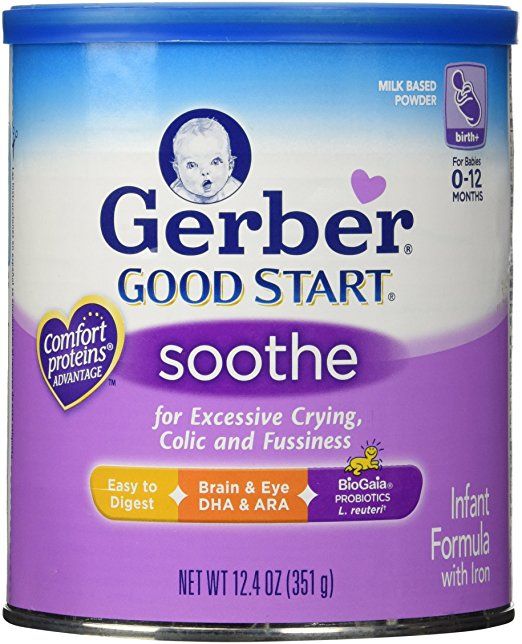 If Abbott does not comply, it faces $30,000 in damages per day of violation (up to $5 million in annual fines). The terms of the agreement are valid for at least 5 years.
If Abbott does not comply, it faces $30,000 in damages per day of violation (up to $5 million in annual fines). The terms of the agreement are valid for at least 5 years.
FDA chief Robert Kaliff stated, "The public can be assured that our FDA will do everything possible to ensure that baby food continues to meet safety and quality standards." The agreement between Abbott and the FDA has been approved by the US District Court for the Western District of Michigan. However, it’s too early for parents to rejoice: Abbot said that a restart is possible within two weeks, and mixtures will appear on store shelves no earlier than in 6-8 weeks.
Disrupted logistics and monopolies
Another reason that is less talked about is disruptions in the supply chain. Everything affects: a critical shortage of labor (which we have already written about more than once), problems with the production of packaging and transportation. All this together affects the production and distribution of goods. According to Datasembly CEO Ben Reich, "the economic situation affects this category of goods more than others."
According to Datasembly CEO Ben Reich, "the economic situation affects this category of goods more than others."
The crisis has reached such proportions that even the federal authorities were forced to react. On May 12, President Joe Biden met with representatives from Walmart, Target, Reckitt and Gerber to discuss ways to reduce the deficit. He also instructed the Federal Trade Commission to use its powers to monitor allegations of price gouging and the Justice Department to work with state attorneys general to crack down on retailers who took advantage of the situation.
On May 13, the House Oversight Committee announced that it had launched an investigation into the baby food situation. Letters were sent to all four manufacturers asking them to explain how they plan to handle the crisis and what they are doing to prevent this from happening in the future. In addition, the Committee will also investigate allegations received from consumers of price gouging. The meeting of the Committee on this issue is scheduled for May 26.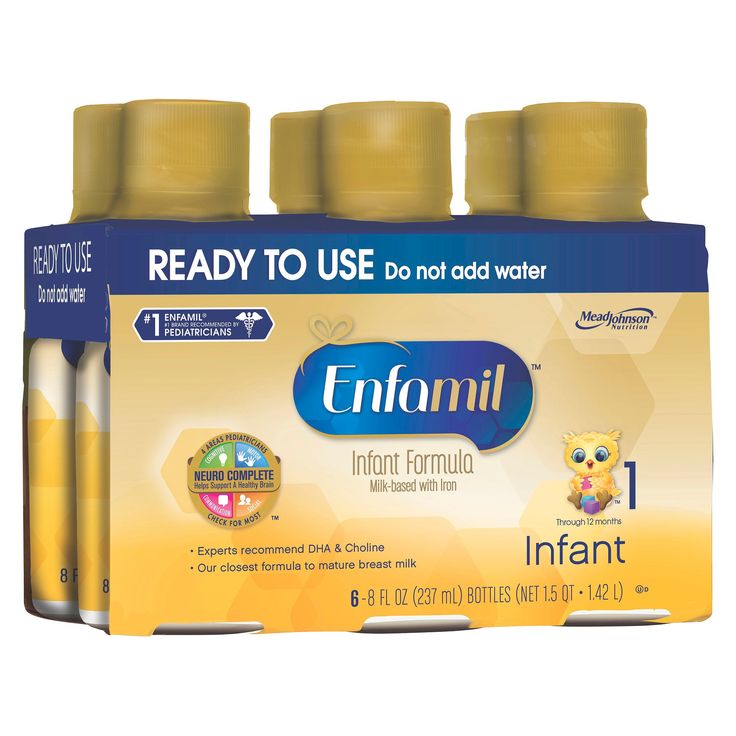
At the same time, the recall of goods for one reason or another is a common occurrence. Thousands of medicines and products are withdrawn from sale every year, and yet there is no nationwide crisis, and sellers do not restrict the sale of essential items in the spirit of Soviet trade.
Four large companies now control 90% of America's supply of infant formula: Abbott, Mead Johnson, Gerber and Perrigo Nutritionals. Abbott, which makes Similac, and Mead Johnson, which makes Enfamil, have nearly 80% of the market. Mead Johnson has already stated, “We have taken steps to ramp up production of Enfamil and are currently shipping 50% more products to address consumer concerns as quickly as possible.” Considering how the prices for dry mixes have risen, the crisis is beneficial for all manufacturing companies.
It will be easier to import baby food
Another factor that contributed to the crisis is America's regulatory and trade policies. The FDA regulation of infant formula is so strict that most products coming from Europe cannot be bought here due to technical issues such as labeling requirements. There is no question about the quality of European blends: studies have shown that in some respects they can even be better than American ones, because the European Union bans certain types of sugar (for example, corn syrup). The US also restricts the import of formulas that comply with FDA regulations. For large volumes, the import tax for mixtures can exceed 17%. Currently up to 98% of the baby food on the market is made in the USA. And during a crisis, the lack of alternative supplies becomes a rather big problem.
There is no question about the quality of European blends: studies have shown that in some respects they can even be better than American ones, because the European Union bans certain types of sugar (for example, corn syrup). The US also restricts the import of formulas that comply with FDA regulations. For large volumes, the import tax for mixtures can exceed 17%. Currently up to 98% of the baby food on the market is made in the USA. And during a crisis, the lack of alternative supplies becomes a rather big problem.
Therefore, for the first time, an unprecedented step is announced - the US intends to increase imports of infant formula in order to reduce the nationwide shortage. Potential importers in the FDA are manufacturers from Australia, New Zealand, the UK and the Netherlands. On May 16, the FDA called on foreign manufacturers to apply to import their products into the United States. It is reported (however, without going into details) that the verification process will be "optimized".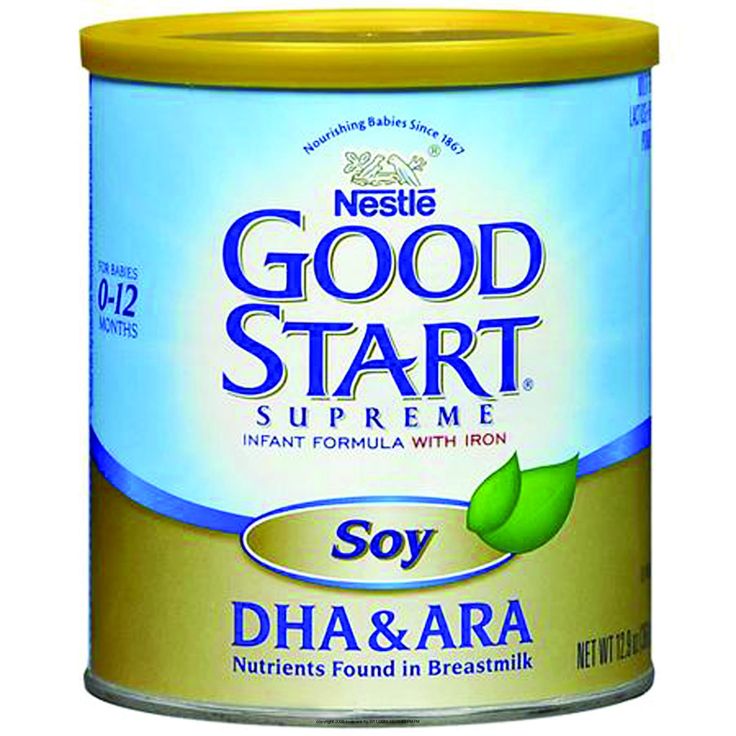 White House press secretary Karine Jean-Pierre said that "priority will be given to applications from those companies most likely to be able to prove product quality and be able to get the most baby food to American stores as quickly as possible." Thus, the advantage will be given to large manufacturing companies, which will be able to quickly cover the shortage that has arisen.
White House press secretary Karine Jean-Pierre said that "priority will be given to applications from those companies most likely to be able to prove product quality and be able to get the most baby food to American stores as quickly as possible." Thus, the advantage will be given to large manufacturing companies, which will be able to quickly cover the shortage that has arisen.
However, even if import applications and related documentation confirming the safety of mixtures are submitted, relatively speaking, tomorrow, it may be weeks before the products reach the stores. Once the application is filed, the FDA will still need to review the baby food to ensure quality control to American standards. The import facilitation policy was adopted as a temporary measure for the next six months.
In the meantime, parents of babies rush about in search of baby food, politicians from all sides have decided to use the crisis to their advantage. So, Republican Congresswoman Kat Cammack posted a video on her Facebook account about how the federal authorities send packages of baby food to the border with Mexico: “American stores have empty shelves, there is no shortage at the border.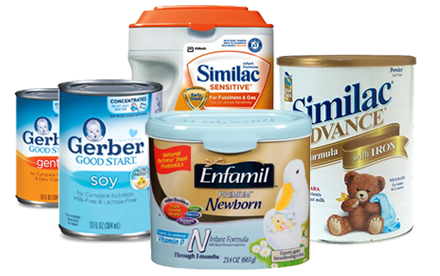 ” Cammack said the Biden administration should not put the needs of illegal immigrants ahead of the interests of American citizens. Another Republican politician, Rep. Eliza Stefanik, also said it was "absolutely unacceptable" and drew a parallel with Trump's famous slogan, "America continues to be put last." In turn, Democratic politicians Eric Svolvell and Ruben Gallego accused Eliza of wanting to "starve babies" in border centers where illegal immigrants are detained.
” Cammack said the Biden administration should not put the needs of illegal immigrants ahead of the interests of American citizens. Another Republican politician, Rep. Eliza Stefanik, also said it was "absolutely unacceptable" and drew a parallel with Trump's famous slogan, "America continues to be put last." In turn, Democratic politicians Eric Svolvell and Ruben Gallego accused Eliza of wanting to "starve babies" in border centers where illegal immigrants are detained.
Only one thing can be said with certainty: even with the increase in production and the green light for imports, the situation with the shortage of infant formula will not change in the next couple of weeks.
Subscribe
The authors:
- Victoria Averbukh
Ministry of Justice USA New Zealand Great Britain Mexico Australia
- 21 Oct
Creative industries in Siberia can get a new impetus for development thanks to cultural events
- Oct 20
Digitization will help solve the personnel problem
- Oct 17
New media: who and how forms the modern information field
What else to read
-
Among the dead in the Kostroma club "Polygon" was an orphan
A photo 9214
Irina Bobrova
-
Political scientist predicted the entry of NATO troops into Ukraine
20143
Polina Petrusevich
-
Death of a mercenary: Australian sniper "Ninja" killed in Donbass
11011
Andrey Yashlavsky
-
Experts named the most dangerous weapon from the new US deliveries to Ukraine
54016
Sergey Valchenko
-
Revealed a record robbery of collectors near Domodedovo: long hair helped
30305
Stanislav Yuriev
What to read:More materials
In the regions
-
Grain deal suspended due to terrorist attack in Sevastopol
45789
CrimeaPhoto: Pixabay.
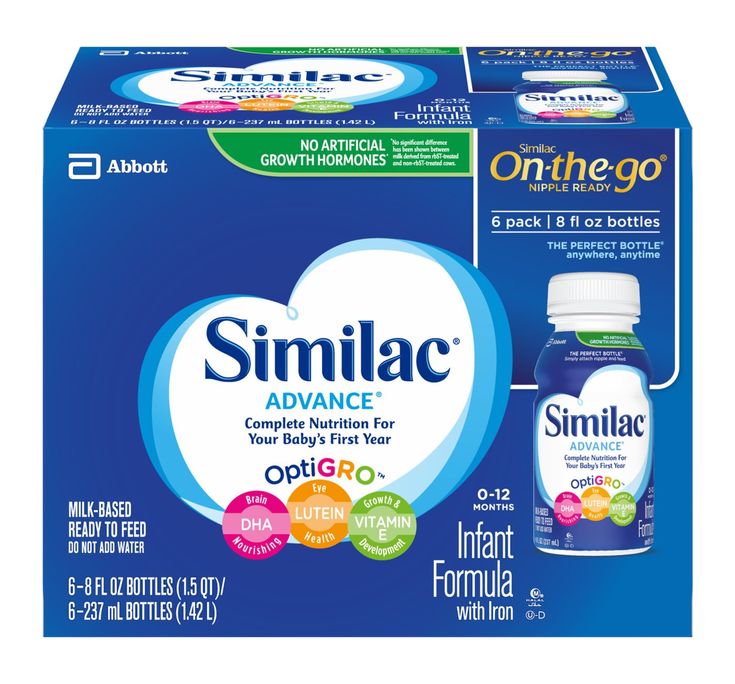 com
com -
"The girl went into hysterics": what was happening at the time of the shelling of the bus in Pskov
A photo 29830
PskovSvetlana Pikaleva
-
Ministry of Defense of the Russian Federation: Sevastopol was attacked by 9 aircraft and 7 sea drones
15178
Crimeaphoto: crimea.



